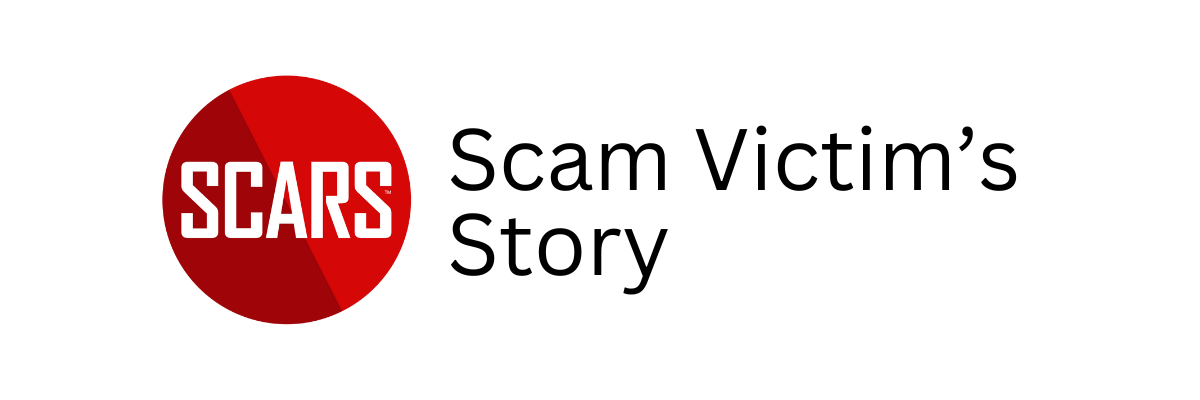Sadako Toyoda 豊田禎: Another Innocent Scam Victim Money Mule Has Been Arrested In Japan
Another Innocent Money Mule Will Go to Prison
Primary Category: Scam Victim’s Story
Authors:
• SCARS Editorial Team – Society of Citizens Against Relationship Scams Inc.
• 日テレNEWS NNN
About This Article
Sadako Toyoda, a 54-year-old Japanese woman, was manipulated into becoming a money mule by a scammer she met online, leading to her arrest. The scammer, posing as a doctor in a war zone, convinced Toyoda to impersonate a diplomat and collect money from another victim.
On May 29, Toyoda attempted to defraud a woman in Sagamihara City of 1 million yen. Despite being a victim of psychological manipulation, Toyoda faces prison. This case underscores the extreme lengths to which scam victims can be coerced, highlighting the severe impact of such manipulative tactics.

Sadako Toyoda 豊田禎: Another Innocent Scam Victim Manipulated into becoming a Money Mule has been Arrested in Japan
SCARS NOTE: We cannot say this enough. The things that innocent victims can be manipulated into doing has no limit. From robbing a bank to impersonating diplomats. When a victim is in psychological enslavement because of the manipulation and control anything is possible.
Here is a case where a victim, Sadako Toyoda, was controlled into impersonating a diplomat to collect money from another victim.
A 54-year-old woman Sadako Toyoda is believed to be a ‘receiver’ (money mule) was arrested for trying to defraud cash from another woman. Her scammer, who demanded money, was a man she met on SNS and had romantic feelings for.
According to the police, the suspect Sadako Toyoda is suspected of conspiring with her associates on the 29th to defraud a woman in her 50s living in Sagamihara City of 1 million yen in cash.
The woman had been communicating with a man named “Sato Goro” who pretended to be a doctor working in a war zone whom she met on SNS last month, and this man said, “I want you to help me live with you.
Sadako Toyoda is believed to have come to receive the money under the guise of a diplomat, and denied the investigation, saying, “I don’t understand.” This is a classic depiction of cognitive dissonance following the realization that it was a ll a scam.
Sadly, Sadako Toyoda – herself a victim – will likely go to prison.
Source & Video: 外交官装い…“ロマンス詐欺未遂”で「受け子」の女逮捕|日テレNEWS NNN (ntv.co.jp)
Please Rate This Article
Please Leave Us Your Comment
Also, tell us of any topics we might have missed.
Thank you for your comment. You may receive an email to follow up. We never share your data with marketers.
-/ 30 /-
What do you think about this?
Please share your thoughts in a comment above!
More Victim’s Stories:
- U.S. Government Bans Woman Money Mule From Helping Scammers Anymore – 2024 (scamsnow.com)
- Mariko Takeuchi – Romance Scam Victim Became An Unwitting Drug Mule – 2024 (scamsnow.com)
- The Tragic Story Of Laura Kowal – A Romance Scam Victim Who Died Possibly At The Hands Of The Ghana/Nigerian Scammers – 2024 – [Videos] (scamsnow.com)
- Romance Scam Victim Steals And Gives To Her Scammer – 2024 (scamsnow.com)
- A Desperate Scam Victim – Ann Mayers – Becomes A Bank Robber – 2024 [VIDEOS] (scamsnow.com)
-/ 30 /-
What do you think about this?
Please share your thoughts in a comment above!
SCARS LINKS: AgainstScams.org RomanceScamsNOW.com ContraEstafas.org ScammerPhotos.com Anyscam.com ScamsNOW.com
reporting.AgainstScams.org support.AgainstScams.org membership.AgainstScams.org donate.AgainstScams.org shop.AgainstScams.org
youtube.AgainstScams.org linkedin.AgainstScams.org facebook.AgainstScams.org
ARTICLE RATING
TABLE OF CONTENTS
CATEGORIES
MOST POPULAR COMMENTED ARTICLES
POPULAR ARTICLES
U.S. & Canada Suicide Lifeline 988
![NavyLogo@4x-81[1]](https://scamsnow.com/wp-content/uploads/2025/04/NavyLogo@4x-811.png)
ARTICLE META
WHAT PEOPLE ARE TALKING ABOUT LATEST SITE COMMENTS
See Comments for this Article at the Bottom of the Page
on Aren’t We All The Same? Aren’t We All Just Meat-Robots? An essay on Humanity by Tim McGuinness, Ph.D. – 2025: “excelente!!! la claridad y la profundidad del análisis son realmente impresionantes. Me aportó mucho leerlo. totalmente de acuerdo entre la…” Jul 16, 11:17
on Savior Syndrome And The Negative Consequences To Them And Other Scam Victims – 2023: “We must heal ourselves before trying to help or heal others. It is easy to get caught up in the…” Jul 16, 11:13
on Anger & Self-Radicalization – Recovery Psychology 2023: “Anger can be useful but most often it is destructive on the individual, their family and friends. I like that…” Jul 16, 10:59
on Residual Fear In Scam Victims – 2024 [UPDATED 2025]: “Thank you for another fantastic SCARS article! I have felt some fear lately, that has caused me to feel tense…” Jul 16, 10:10
on Living in the Invisible Safety Bubble – 2025: “Enlightening, thought provoking, and another SCARS article that gives me pause. Recovery is a process and takes time. In a…” Jul 16, 07:46
on Living in the Invisible Safety Bubble – 2025: “We have too many kinds of scams in Japan. Recently, there are impersonation scam of “fake Cardinal account” gathering fraud…” Jul 16, 07:27
on Motte and Bailey – A Cognitive Pattern & Defense Mechanism that Inhibits Honest Acceptance – 2025: “Important information for reflection for any survivor : -to what extent the Motte & Bailey method is present / still…” Jul 16, 07:21
on Arts and Crafts Can Significantly Aid in Recovery for Scam Victims – 2025: “Right after the scam, I didn’t want to do anything. I felt defeated and ashamed—as if I had betrayed both…” Jul 16, 00:01
on The Fallacy of Fallacies & Living in the Real World – Error in Reasoning that Makes an Opinion Seem Valid – 2025: “I didn’t know about fallacies and cognitive biases until I enrolled in the Survivor’s School. When I learned about them,…” Jul 15, 23:40
on Motivational Denial – Recovery Psychology – 2023: “I agree with this article about some motivational material Looking at motivational material is not a totally bad thing but…” Jul 15, 12:25
on Living in the Invisible Safety Bubble – 2025: “I thought this was a brilliant article….lots to think about now.” Jul 15, 09:39
on Arts and Crafts Can Significantly Aid in Recovery for Scam Victims – 2025: “I did not realize that things I like doing very much—knitting or sudoku—were so helpful in my recovery process. The…” Jul 14, 11:28
on Projection And Scam Victims: “The moment I realized I had a financial loss due to a scam I realized that I felt shame, guilt,…” Jul 13, 19:12
on Japanese Legend of Tears – When There Are No Words – 2025: “After discovering the fraud, the pain was enormous. I shed oceans of tears, but I always tried to do it…” Jul 13, 10:50
on The SCARS Institute Scam Victim Recovery Timeline – 2025: “Wow. I umm experienced some of the later curves. I have been bouncing back and forth between asking myself why…” Jul 11, 00:01
on Transference And Emotional Danger After The Scam – 2024: “Thank you for the kind but firm reminder that the person in the stolen profile photo has their own life.…” Jul 9, 01:26
on ‘Mental Defeat’ – The Unique Condition Of Giving Up – 2024: “Thank you for another great article. I can see from this article that mental defeat would be debilitating to a…” Jul 9, 00:49
on Trust: Romance Scams Betrayal And Scam Victims – 2024: “This provided valuable insight that I can identify with” Jul 8, 16:44
on A Scam Victim in Extreme Distress – Stopping the Pain – 2024: “Your trust issues are very understandable. We are very sorry this happened to you. We suggest that you contact an…” Jul 8, 14:42
on A Scam Victim in Extreme Distress – Stopping the Pain – 2024: “My online counselors advised me to check myself in. I went to the hospital because I was suicidal. After I…” Jul 8, 13:44
Important Information for New Scam Victims
Please visit www.ScamVictimsSupport.org – a SCARS Website for New Scam Victims & Sextortion Victims
SCARS Institute now offers a free recovery program at www.SCARSeducation.org
Please visit www.ScamPsychology.org – to more fully understand the psychological concepts involved in scams and scam victim recovery
If you are looking for local trauma counselors, please visit counseling.AgainstScams.org
If you need to speak with someone now, you can dial 988 or find phone numbers for crisis hotlines all around the world here: www.opencounseling.com/suicide-hotlines
Statement About Victim Blaming
Some of our articles discuss various aspects of victims. This is both about better understanding victims (the science of victimology) and their behaviors and psychology. This helps us to educate victims/survivors about why these crimes happened and not to blame themselves, better develop recovery programs, and help victims avoid scams in the future. At times, this may sound like blaming the victim, but it does not blame scam victims; we are simply explaining the hows and whys of the experience victims have.
These articles, about the Psychology of Scams or Victim Psychology – meaning that all humans have psychological or cognitive characteristics in common that can either be exploited or work against us – help us all to understand the unique challenges victims face before, during, and after scams, fraud, or cybercrimes. These sometimes talk about some of the vulnerabilities the scammers exploit. Victims rarely have control of them or are even aware of them, until something like a scam happens, and then they can learn how their mind works and how to overcome these mechanisms.
Articles like these help victims and others understand these processes and how to help prevent them from being exploited again or to help them recover more easily by understanding their post-scam behaviors. Learn more about the Psychology of Scams at www.ScamPsychology.org
SCARS INSTITUTE RESOURCES:
If You Have Been Victimized By A Scam Or Cybercrime
♦ If you are a victim of scams, go to www.ScamVictimsSupport.org for real knowledge and help
♦ Enroll in SCARS Scam Survivor’s School now at www.SCARSeducation.org
♦ To report criminals, visit https://reporting.AgainstScams.org – we will NEVER give your data to money recovery companies like some do!
♦ Follow us and find our podcasts, webinars, and helpful videos on YouTube: https://www.youtube.com/@RomancescamsNowcom
♦ Learn about the Psychology of Scams at www.ScamPsychology.org
♦ Dig deeper into the reality of scams, fraud, and cybercrime at www.ScamsNOW.com and www.RomanceScamsNOW.com
♦ Scam Survivor’s Stories: www.ScamSurvivorStories.org
♦ For Scam Victim Advocates visit www.ScamVictimsAdvocates.org
♦ See more scammer photos on www.ScammerPhotos.com
You can also find the SCARS Institute on Facebook, Instagram, X, LinkedIn, and TruthSocial
Psychology Disclaimer:
All articles about psychology and the human brain on this website are for information & education only
The information provided in this and other SCARS articles are intended for educational and self-help purposes only and should not be construed as a substitute for professional therapy or counseling.
Note about Mindfulness: Mindfulness practices have the potential to create psychological distress for some individuals. Please consult a mental health professional or experienced meditation instructor for guidance should you encounter difficulties.
While any self-help techniques outlined herein may be beneficial for scam victims seeking to recover from their experience and move towards recovery, it is important to consult with a qualified mental health professional before initiating any course of action. Each individual’s experience and needs are unique, and what works for one person may not be suitable for another.
Additionally, any approach may not be appropriate for individuals with certain pre-existing mental health conditions or trauma histories. It is advisable to seek guidance from a licensed therapist or counselor who can provide personalized support, guidance, and treatment tailored to your specific needs.
If you are experiencing significant distress or emotional difficulties related to a scam or other traumatic event, please consult your doctor or mental health provider for appropriate care and support.
Also read our SCARS Institute Statement about Professional Care for Scam Victims – click here
If you are in crisis, feeling desperate, or in despair, please call 988 or your local crisis hotline.
More ScamsNOW.com Articles
A Question of Trust
At the SCARS Institute, we invite you to do your own research on the topics we speak about and publish. Our team investigates the subject being discussed, especially when it comes to understanding the scam victims-survivors’ experience. You can do Google searches, but in many cases, you will have to wade through scientific papers and studies. However, remember that biases and perspectives matter and influence the outcome. Regardless, we encourage you to explore these topics as thoroughly as you can for your own awareness.














![scars-institute[1]](https://scamsnow.com/wp-content/uploads/2025/04/scars-institute1.png)
![niprc1.png1_-150×1501-1[1]](https://scamsnow.com/wp-content/uploads/2025/04/niprc1.png1_-150x1501-11.webp)

Leave a Reply